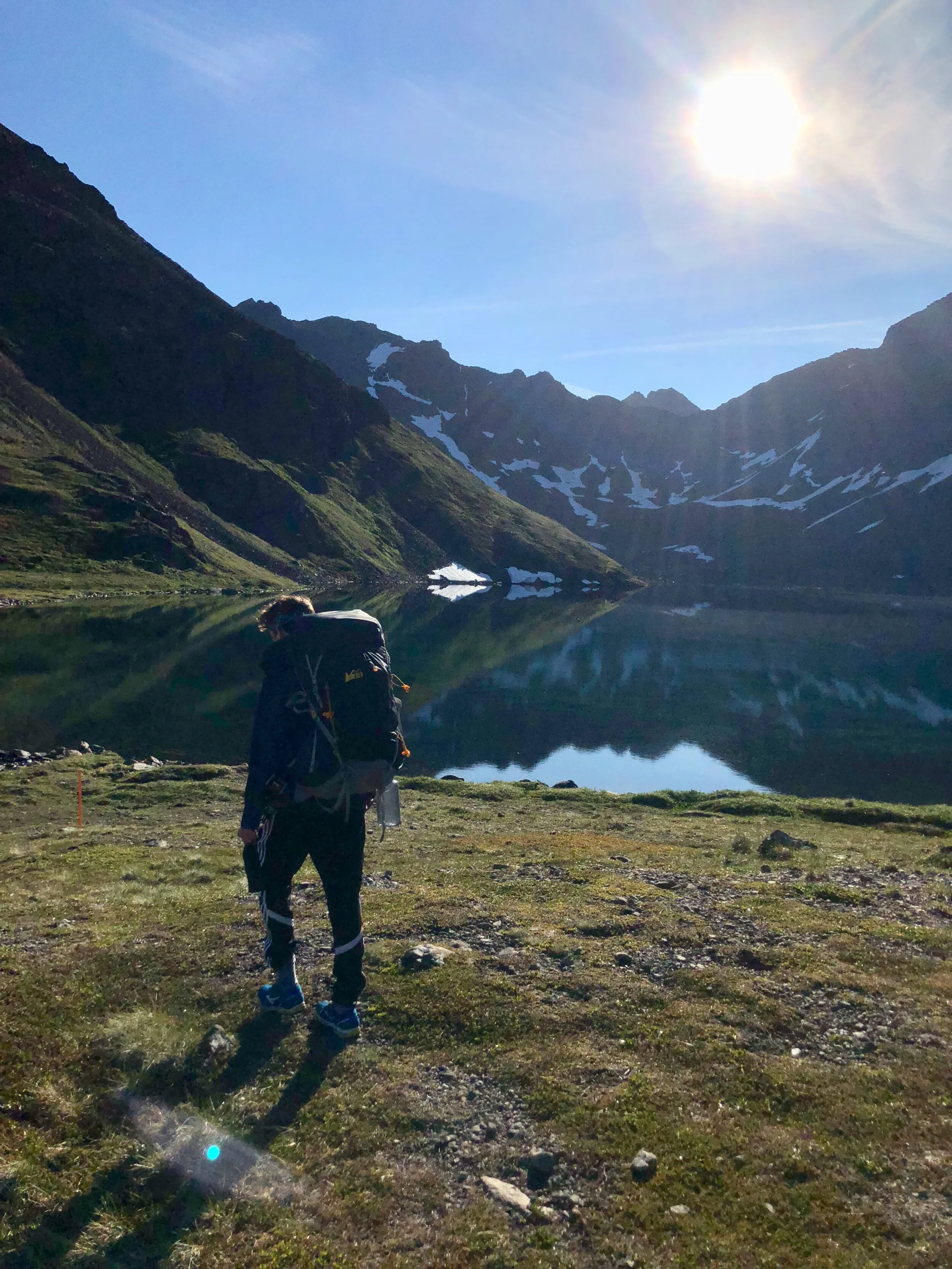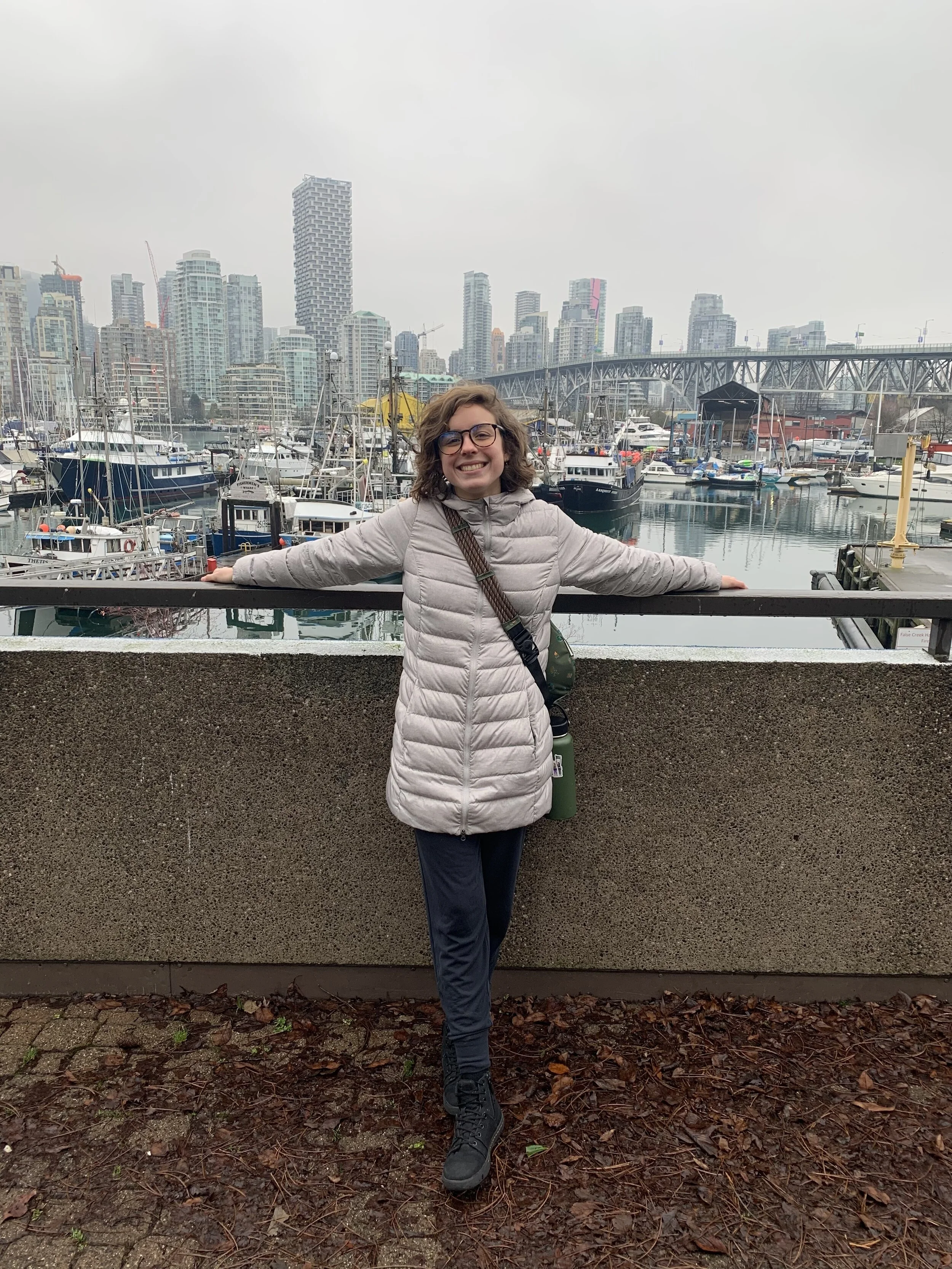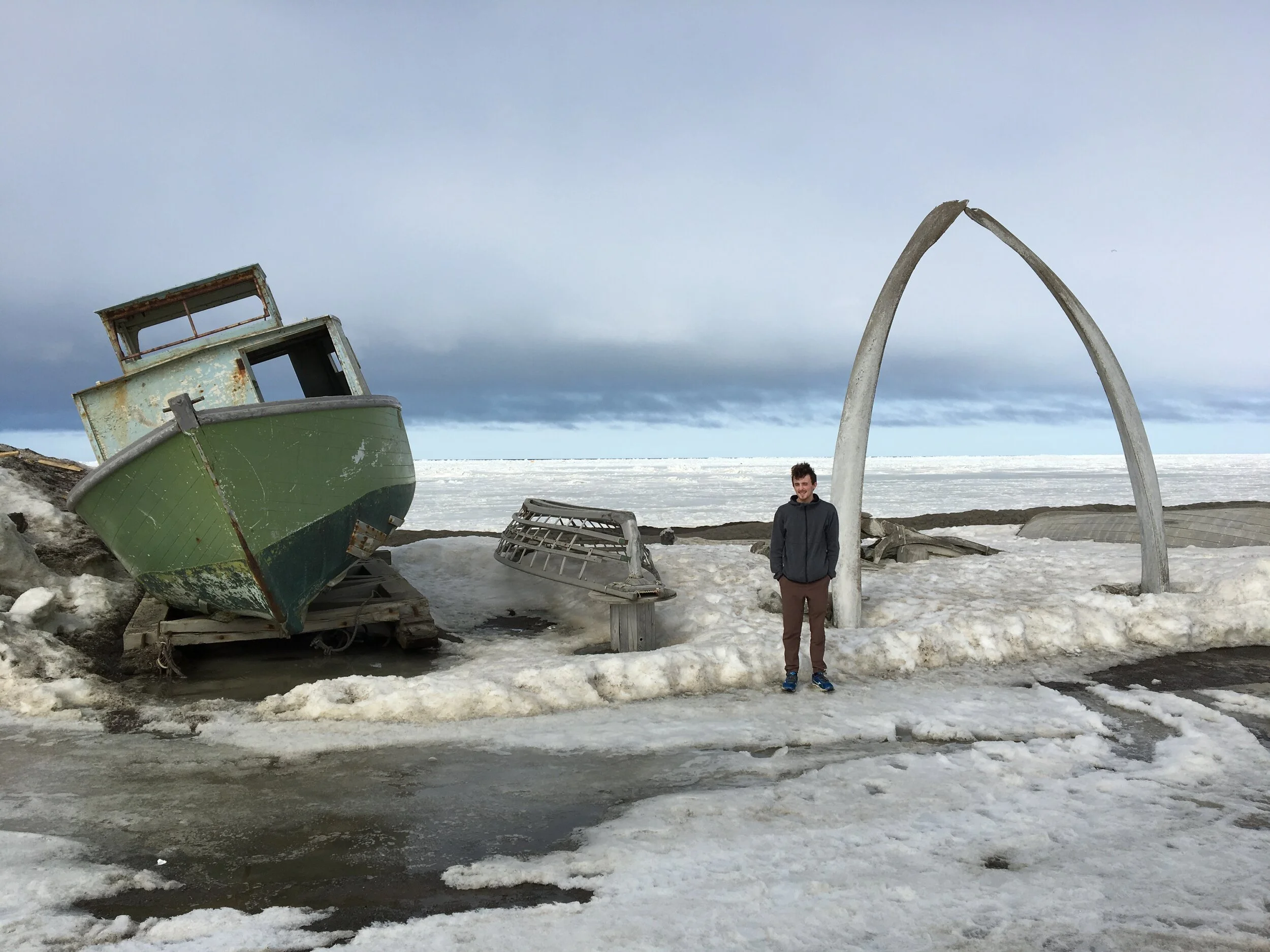Scope
The world is obviously different today than before the COVID-19 pandemic. As a foreword, this website focuses mostly on traveling in a pre- or post-pandemic world, where businesses are open and people can move around freely. While the specifics might vary from country to country, these basics should be applicable wherever you go. For context, I break down all aspects of traveling into four Ps: planning, packing, performing, and pondering. Each is equally important and will help you have the best adventure possible.
Backpacking vs. Backpacking
What do you think of when you hear the word backpacking? Do you think of excited nomads on a tour of Europe? Do you think extreme trekking through remote areas of wilderness? Do you think of casual camping along a well-used trail? The thing is, all three of those scenarios are correct. A quick search of the term defines backpacking as ‘traveling or hiking while carrying one's belongings in a backpack’ (Oxford Languages). Any time you are away from home and living out of a backpack, whether it's in the city or out on a trail, you are backpacking. As a lifelong Alaskan, I’ve found that backpacking in the wild and backpacking in a foreign country share many similarities, the most important one being preparedness. To have the best backpacking experience, you need to be prepared for as many scenarios as possible. I take this approach when packing for a trip and it has saved me many headaches while on the road.
Backpacking at Rabbit Lake in Alaska, USA.
Backpacking through Vancouver, Canada.
Picking a Place
All travel plans start with a simple idea. Have you always wanted to go to Rome? Did a friend tell you all about a trip that changed their life? Are you itching to get out there and explore? No matter your reasons for exploring, make sure you have a genuine interest in visiting the place you decide on. Do your own research, double-check with people you trust, and decide if it's a good fit for you. To pick a place or route, I usually look at a map. By reading all the different country names, some will begin to pop out at you. Maybe you saw the place in the news, maybe you know someone living there, maybe your subconscious knows something you don't. It’s usually best to start with a continent and then narrow it down from there. For example, when I visited Chile I started by looking at all of South America. I knew I wanted to go somewhere with Spanish as the official language, so I ruled out a couple of the countries. Next, I looked at the stability and safety of each country and ruled out a couple more. Finally, I looked at the cultures and climates to narrow my list down to Chile, Peru, and Argentina. I happened to know someone in Chile at the time, so I decided to meet up with them.
Note: be cautious when choosing, as there’s an incredible amount of hype built up around travel destinations. Just because it’s someone’s favorite destination doesn’t mean it will be yours, too. I can’t tell you how many times I’ve bought into hype only to be somewhat disappointed.
With a friend or by myself?
The age-old question is whether to go alone or whether to go with a buddy. Having done both, I’ll say there are serious pros and cons to each. I prefer backpacking with a buddy because I have more fun with others, but some people are the opposite. Below is a quick cheat sheet to guide your decision.
Alone Pros
Easier to meet people
More personal growth
Much more freedom
More time for reflection
Control where time is spent
Together Pros
Deepen connection with buddy
Usually safer
Easier to come up with ideas
Potentially more fun
Lifelong shared memories
Alone Cons
Easy to get lonely
No one to share memories with
Can be a bit intimidating
Safety concerns
Cannot split costs
Together Cons
Disagreements and negotiations
Different goals for the trip
Extraversion vs. introversion
More likely to spend money
Can get annoyed of buddy
If you do end up traveling with a friend, don’t be afraid to spend some time apart. I recommend setting ground rules before the trip so that you both get the experience you want. The same applies to people you meet in hostels—try to separate some time for yourself so you aren’t dragged along to activities or places you aren’t interested in.
Without a buddy, expect many solo photographs like this one from Barrow, Alaska.
What is a hostel?
If I had to give one tip for a great vacation, it would be to stay in hostels. Hostels are low-cost hotel alternatives that revolve around community. Typically, rooms are dormitory-style with bunk beds, although private rooms are readily available. Hostels usually have shared spaces (kitchen, lounge, pool, etc.) and throw regular events for travelers. Most commonly you’ll see pub crawls, walking tours, and communal dining opportunities listed on a bulletin board near the entrance. There are tons of other great perks too, like luggage storage, free lockers, free wifi, laundry services, and free shuttles to name a few. Hostels are great because they allow you to meet and interact with adventurers from all over the world with ease. I consider myself a world traveler, not because of the places I’ve been to, but because of the people I’ve met along the way.
Pro tip: the easiest and best way to meet people in hostels is to ask them where they’re from.
How long is long enough?
This question is bound to be controversial, but throughout my travels I’ve split my trips into one-month chunks, spending about two weeks per country. Two weeks is enough to get a feel for a place without getting bored or spending too much money. On a smaller scale, I’ll spend between two and five days per city. Again, these numbers will absolutely vary by person, but there are a few reasons they work best for me.
First, a month is a long time. If you’re coming from working eight hours a day, five days a week, you’re going to need something to do during all those extra hours. What many people don’t realize is there’s quite a bit of downtime on trips. Most activities and tours take about an hour, as do breakfast, lunch, and dinner. If you wake up at 8:00AM and go to sleep at 11:00PM as I do, that's fifteen hours you have to fill. At a conservative three meals and three main activities per day, that leaves nine hours. One or two of those will be eaten up by transportation, another by getting ready, and another by miscellaneous, but realistically you’ll have five to six hours of downtime every day. This could be high or low depending on your pacing, but it’s a good estimate for my style of travel. What should you do during downtime? It’s completely up to you. I like to write or read in coffee shops, go to different rock gyms, walk around the city, or spend time in parks. If you’re journeying alone, it’s not a bad idea to socialize for a bit in hostels.
Rock climbing inside or outside is an excellent way to meet people and pass the time.
The second reason I like getting away for a month is that intercontinental flights are expensive—even with good deals, you’re looking at upwards of $1,000 USD roundtrip. I feel better spending that much money on a longer trip rather than a shorter one. What's more, domestic flights and flights between neighboring countries are considerably cheap. Instead of visiting one place for a month, consider adding an extra country or two to your itinerary.
The third, and final reason, is I get homesick. While backpacking helps me appreciate faraway places, it helps reinforce my love of home. I feel more grateful for the little details and see my city in a different light upon my return. If you ever feel like you're stuck in a rut, a month of sightseeing is sure to reinvigorate you in a way that few other things can.
How much do I need to plan?
How much structure you need on a trip depends on your personality, goals, and timeframe. If you have a single week to explore, you might want to organize your schedule a lot more than if you have, say, six months at your leisure. Personally, I operate on a flexible agenda. I’ll book a hostel for the first three days and the last three days of my trips depending on where my flights arrive and depart. What happens in between, I leave open-ended. Even when vacationing in peak tourism season or during the holidays, you can usually find a bed somewhere in town.
Here’s the thing: researching your trip is a good idea, but overdoing it can ruin the fun. You might set unrealistic expectations, miss out on what the locals recommend, and have to choose between reservations or spontaneous plans. When staying in hostels, you’ll meet all sorts of people with cool ideas and recommendations. When I arrive in a city, I usually spend the first meal researching the area and getting acquainted. The concierge or receptionist is always a good starting point, as they typically live in the area.
Pro tip: book a walking or biking tour in every city you visit to get a feel for a place and learn more about the history. Don’t forget to tip your guide!
Managing Expectations
While backpacking is a life-changing experience, it’s not always smooth sailing. Those pictures you see on social media of beautiful places, amazing meals, and friendly locals are highly choreographed highlights. Unless you're a multi-millionaire that can take a private jet and stay in five-star hotels, the reality is you’re going to run into some bumps in the road. Whether it's spending two hours in a laundromat, showing up to an absolutely crowded tourist trap, or trying to sleep in a loud hostel, part of the beauty lies in the struggle between those highlights. A word of advice? Expect something to go wrong and don’t freak out when it does.
Not everything will go according to plan like this tire-burning protest near Valparaiso, Chile.
Budgeting
There are two ideas when it comes to money: increase your income or lower your expenses. Increasing your income is much more difficult to achieve on a sustainable level and almost always involves hard work and time. If you’re lazy like me or prefer spending your time doing activities you’re passionate about, then budgeting is the single most effective way to reach your financial goals. While some people might need firm numbers and spreadsheets to control their spending (there are plenty of online resources to help with this, I personally recommend Mint), I view budgeting as a mindset. In short, it means evaluating every dollar you spend and finding where cheaper alternatives exist. For example, I’ve cut down on grooming expenses in my life by doing much of it myself. I bought an inexpensive multigroom trimmer from Philips and have been saving money on shaving and haircuts ever since.
Another example of budgeting might be to reevaluate your lifestyle. There’s lots of societal pressure, especially for young people, to follow the crowd, keep up with trends, and buy the latest gadgets. All of these reasons can hold you back from traveling and living the life you want to live. Whenever you spend money on something, ask yourself if you need it or if there’s something else influencing your decision. Some quick tips I’ve learned over the years: explore your local thrift store for deals on gently used items, pick up an inexpensive hobby that you’re passionate about, spend more time outdoors (it’s free), learn how to meal prep tasty food, sell the gadgets you don’t use, get groceries at Walmart or equivalent, downsize or downgrade to the bare necessities, and take advantage of freebies or discounts that come your way.
Working on a Trip
First of all, I do not recommend working while abroad unless you absolutely must. However, it might be the only way to go on an extended trip. I’ve heard of people that pick up odd jobs, own a business, or work for food / accommodation. If you plan on working remotely during an extended trip, I would highly recommend finding a coworking space, as they’re a great resource for meeting people from all over the world. These flexible centers operate similar to a normal office, but with more perks and opportunities for collaboration. You can purchase daily, weekly, and monthly passes for access to private offices, communal desk space, or conference rooms depending on need. Coworking spaces tend to be community-oriented, throwing events or hosting happy hours on a regular basis. Extra perks can include: kitchen use, exercise equipment, wellness centers, exclusive deals, recreational facility passes, discounted concerts, among many others depending on any partnerships the coworking space has with local businesses.
Coworking space in Anchorage, Alaska.
Pro tip: some hostels will let you work during your stay (cleaning bathrooms, doing laundry, cooking, etc.) for reduced prices, so it never hurts to ask.
Trip Cost Breakdown
The average cost for each of my month-long international trips is about $3,000 USD. Of course, numbers vary based on location, season, and duration—the way you travel will also have a huge impact. For example, I prioritize experiences and food where other people might prioritize accommodations and souvenirs. I’ve included how I usually budget below:
Food: $1,000 USD
This comes out to just under $11 USD a meal, three times a day, for thirty days. Buying groceries and cooking in your hostel will probably cut this number in half, but I’ve found it's time-consuming and takes away from the experience (who wants to do dishes on vacation?). Again, it depends on what you prioritize.
Hostels: $400 USD
While I splurge on food, I save on accommodation when compared to hotel travelers. I typically spend $13 USD a night on dorm-style hostel rooms, which is cheap by US standards—in places like Southeast Asia, this number can be even lower. I usually aim for the highest-rated, cheapest hostel I can find.
Note: sometimes cheap hostels will attract questionable guests, so be extra vigilant.
Tickets: $1,000 USD
Most of my trips are based out of Anchorage, Alaska, meaning I spend more than most people on plane tickets (Alaska isn’t close to any major transit hubs). I try to buy the cheapest tickets I can find through KAYAK or the equivalent. Save money by only bringing carry-on baggage.
Transportation: $150 USD
I spend about two to five days in every city I visit and try to use public transportation as much as possible. While rideshare apps and taxis are more convenient, they’re almost always more expensive. The bulk of the $150 USD is spent transiting between cities via train, bus, or boat.
Souvenirs: $50 USD
I like to bring trinkets, food, and art to my loved ones back home, so I budget about $50 USD for souvenirs. Remember to leave empty space in your bag if you plan to bring anything back.
Pro tip: if someone is hosting you (letting you stay at their place for free / heavily discounted), consider bringing a small gift from your hometown to show your appreciation.
Experiences: $300 USD
I mainly travel for experiences and cultural immersion, so I prefer to budget a little extra here. This includes adventure activities like surfing, scuba diving, rock climbing, and rafting, as well as cultural experiences like tours, museums, markets, and performances.
Miscellaneous: $100 USD
A miscellaneous expense can be anything from renting an umbrella to paying for premium WiFi. Random costs will arise as you wander around and it’s important to budget accordingly.
International adventures are expensive, but it’s an investment in yourself—you should save up like you would for any other big purchase in your life. It’s a good idea to be in decent financial health before you go. Regularly contributing to a retirement account, paying off high-interest debt / loans, and having at least three months’ worth of savings (six if you don’t have a job lined up) will keep traveling from derailing other life plans.
Life-changing experiences are more accessible than you think.
Finding Flights
There are thousands of tips on the internet about how to find the cheapest flights possible. Truth is, many of them are a waste of time. All the budget flight websites do the same thing and find similar deals, so pick one and you’re bound to save money. I use KAYAK because it finds the cheapest and quickest flights, but any reputable site will work fine. Make sure to watch out for convenience or service fees.
I have more controversial insider information to share: it's worth spending a little extra to avoid excessive layovers and connecting flights. I know some nomads pride themselves on being able to find the cheapest flights possible at whatever cost, but I prefer to be comfortable. If you have the means, I would recommend flying direct whenever possible. Having traveled on both extremes, I can tell you being in airports for hours is both unnecessary and tiring. However, if you have a layover of twelve hours or more, you should have enough time to explore the city.
Click below to continue to the next section!








